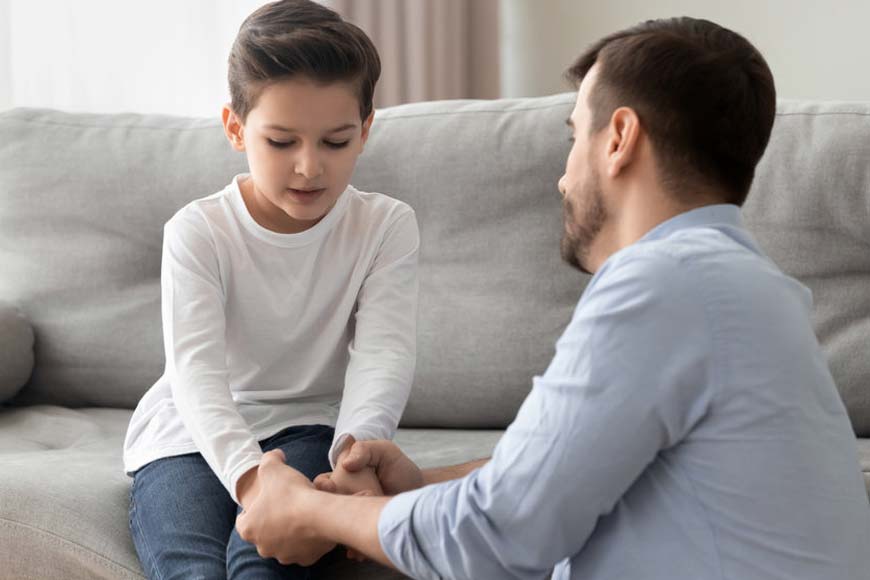Speech Pathology for Children
Empower your child through improved fluency, literacy or social communication. We use play-based activities and fun approaches to provide evidence-based therapies. Parents, grandparents, and even siblings are welcome (and encouraged) to come along.
Signs your child might benefit from speech pathology
There are a few different signs your child may benefit from speech pathology.

Late Talkers
Was your child a late talker and now having trouble communicating at school? Late talkers often find themselves slightly behind their peers at school in terms of language and social communication. Your child’s teacher may have spoken with you about their communication or speech.

Listening Difficulties
Have you ever worried your child may be deaf but found their hearing to be fine when tested? Your child may be able to hear you and what you are saying but not understand it. Through speech pathology interventions, we can assess and potentially treat (where necessary) receptive language development and auditory processing.

Stuttering
Does your child stutter or “clutter” their speech? We can support 3 to 6-year-olds through fluency interventions including the Lidcombe Program. This program can support children and their carers to find improved fluency.

Phonological Awareness
Does your child have difficulty pronouncing new or unfamiliar words? Are they at an age where they’re reading but they have difficulty reading out loud and fluently? Phonological awareness is the awareness of the way that the sounds in words are structured. It’s typically a reliable predictor of reading ability. Children typically start to develop phonological awareness once they become aware of language sounds.
We provide a range of different approaches to suit different ages through phonological awareness skills, reading decoding skills, reading comprehension, and writing skills.
We work with a range of conditions
You might not quite see your child’s specific speech, voice, or swallowing concern above. It doesn’t mean we can’t help! We’re experienced speech pathologists ready to support you.
How does speech pathology work?
We personalise each treatment plan and its detailed activities to each client we work with. Your child will receive speech pathology treatments based on the activities and play they enjoy so we can integrate this development with their natural, day-to-day activities.
It starts with a quick chat
You’ll have an initial assessment
We’ll put together a treatment plan
Strengths-based activities process
How can I prepare for my child’s first appointment?
Give our team a call to discuss your child’s requirements in fluency, literacy or social communication.
We’ll have a chat with you about speech pathology and specific therapies we might use with your child.
The Keys to Supporting Great Communication Development Series: 5 years
If you are only just tuning into our Communication Development series, welcome! Today we post our fifth and final instalment after following the normal development of Receptive Language, Expressive Language and Social Skills in a child from birth through to 5 years....
The Keys to Supporting Great Communication Development Series: 4 Years
He is the busiest kid in the world - or so it seems. His movements are constant, and even in a quiet moment you sense his little brain working over-time. In his own way, he shows you a hunger for learning. The current of questions and make believe is as strong as...
The Keys to Supporting Great Communication Development Series: 3 Years
Your little one is becoming quite a person. There aren't many people who can make you laugh like your 3-year-old. The constant chatter hints to an ever-busy brain running a million miles an hour, finding you up to your ears in the trail of stories, ideas and...
The Keys to Supporting Great Communication Development Series: 2 years
There seems to be quite a storm that occurs inside the heads of our young ones when it comes to the early stages of communicating. There is a disconnect between knowing what they mean to say and their ability to not only express it, but to do so in a way that others...
The Keys to Supporting Great Communication Development Series: 6 months to 1 year
Your little one has just turned 6 months. Everyday she’s getting a little longer, a little stronger and you find yourself gazing at her all the time – she’s the sweetest thing you’ve ever seen and, somehow, she knows it. She lies there, watching you watch her,...
Get started by booking an assessment with one of our speechies
You don’t need a referral to get started. A phone call or email will allow us to start the process of finding your next steps to better communication.